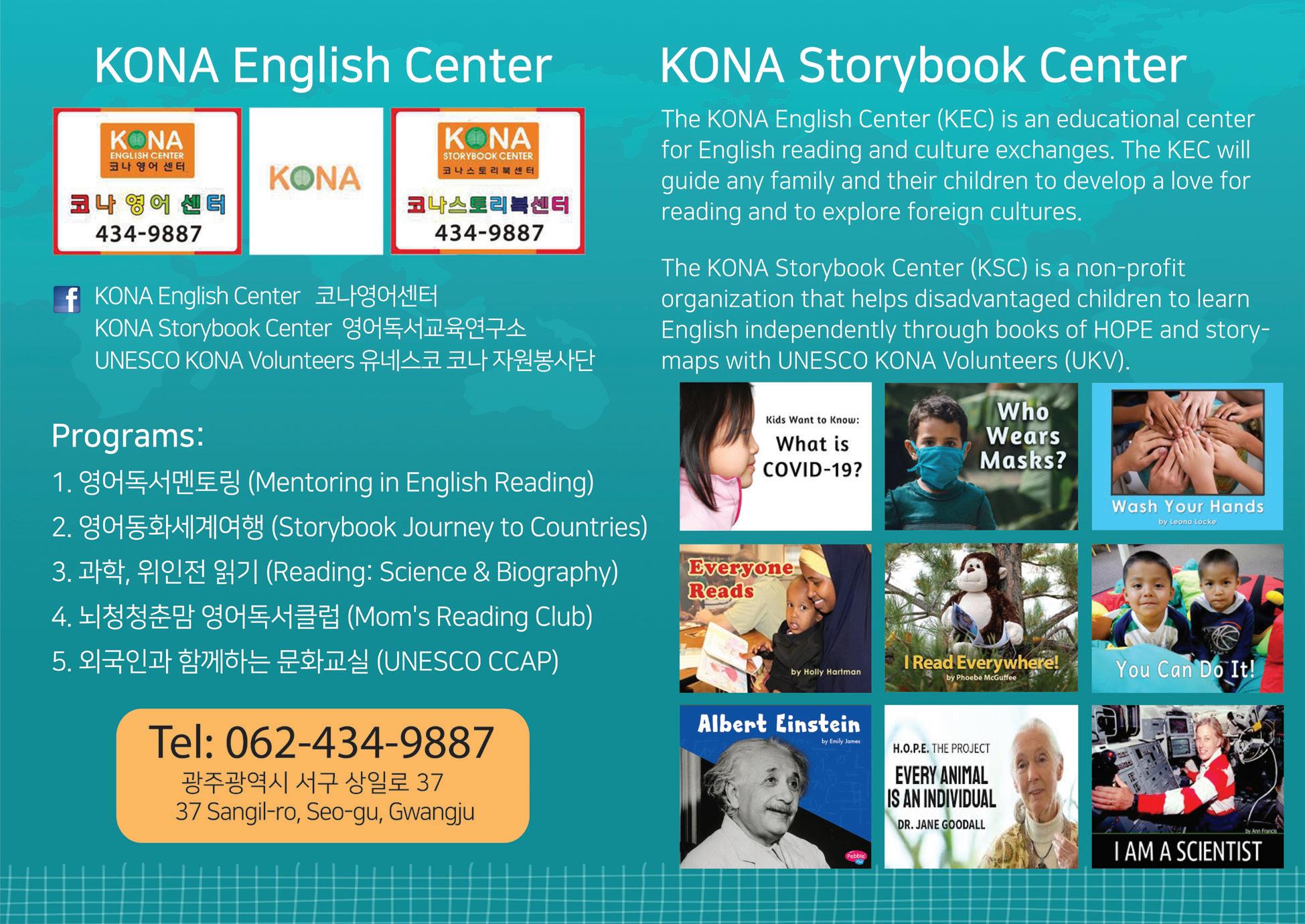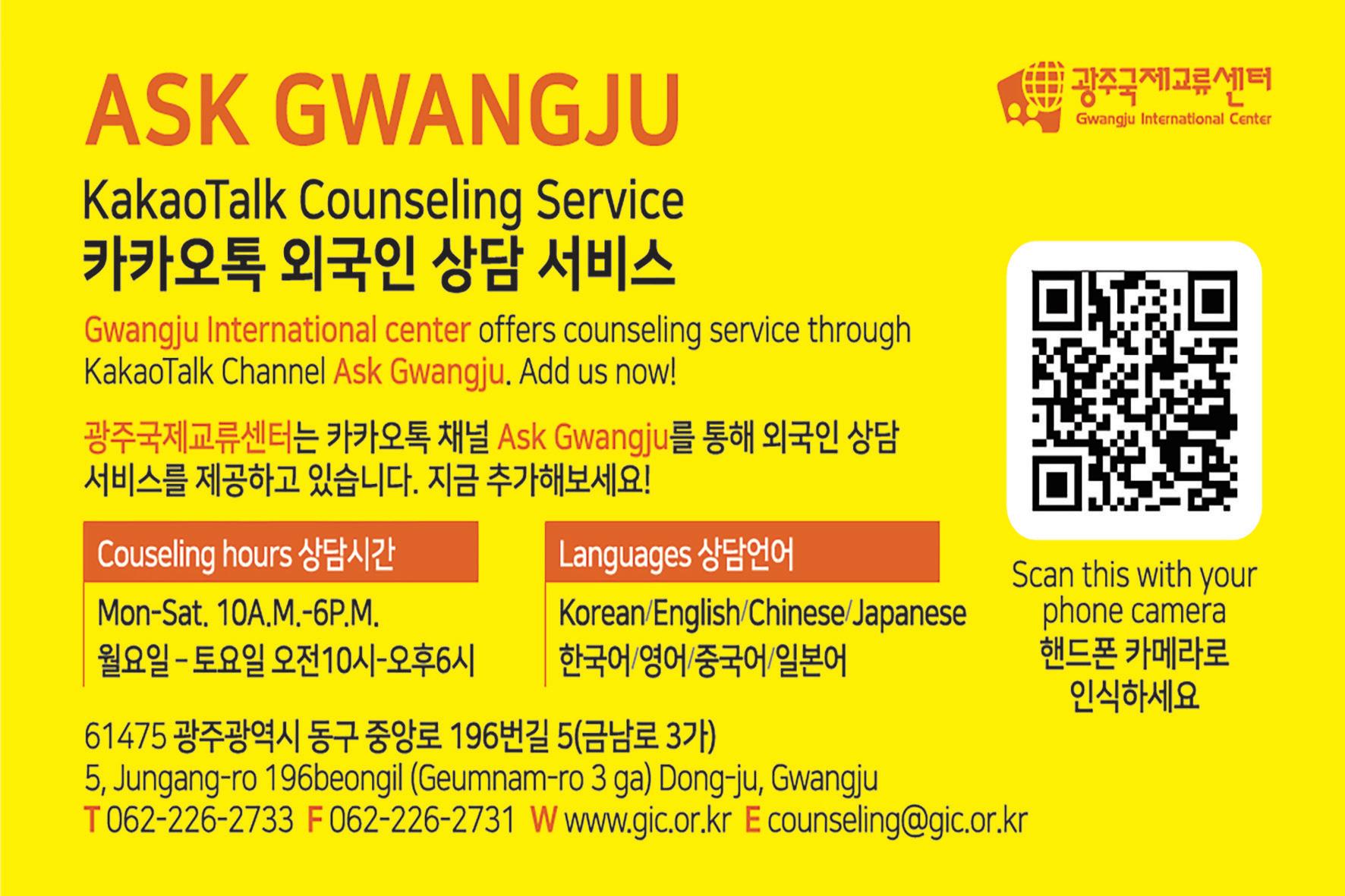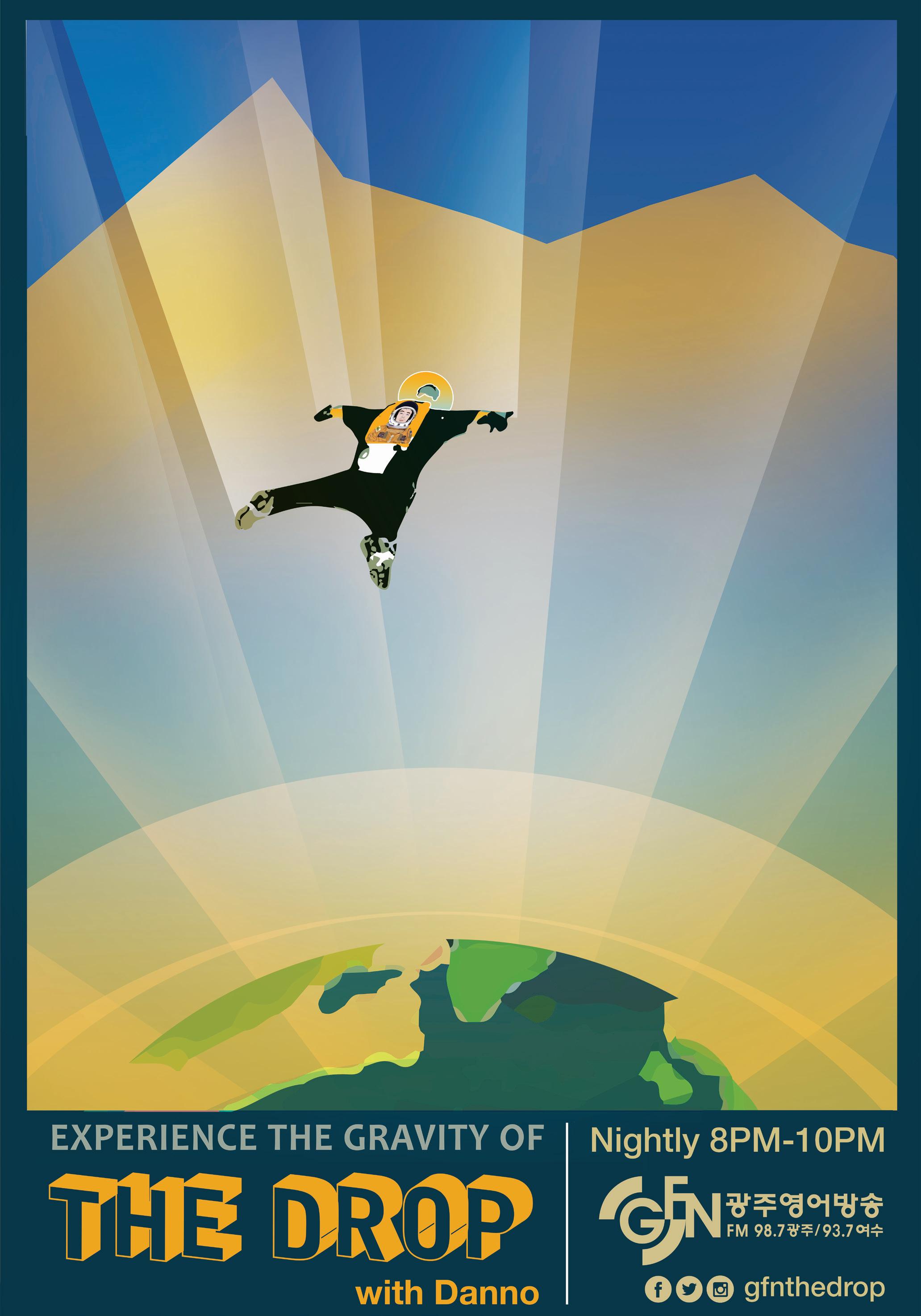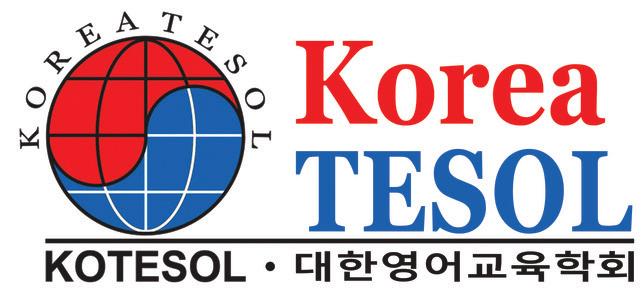
17 minute read
우체국 (Post Office) Creating a Student-Centered
Creating a Student-Centered Classroom
By Dr. David E. Shaffer
Advertisement
When I began teaching English in Korea, standard practice was to introduce new words by writing them on the blackboard (yes, they were black), saying the new lexical item several times, then explaining its meaning and using it in a sentence. Th e teacher might follow up by asking a student or two to make their own sentence using the new lexical item before handing out a worksheet to everyone. Th e worksheet might include a matching exercise, where students were to match the words in one column with their defi nitions in the other. A second exercise might be to write each of the new words in a sentence. And with this exposure, the student was expected to “learn” the new word, which in most cases required memorization.
Th e banking model of education was trending. Th e term was coined by Paulo Freire (1970) as a metaphor of students as containers to be fi lled with knowledge by the teacher, that is, to receive, fi le, and store the deposits. Th e transfer of knowledge was thought of as being unidirectional, from the teacher to the student, much like an online bank transfer is now made. Freire was the fi rst to criticize this traditional banking model, but in time, many would follow.
Th e banking model is a teacher-centered approach to learning. In this conventional approach, the teacher functions as the presenter of information to students, who are expected to passively receive it. It is still quite commonly found in Korea in many university lecture halls and in even more high school classrooms, whether it is an English classroom or that of another subject. Th e relative ineffi ciencies associated with teacher-centered learning have led to the development of student-centered learning, where the focus is on the student in the learning process rather than constantly on the teacher. Let us look at both the teacher- and student-centered learning approaches and consider their advantages and drawbacks to show how focusing more on the student can make for a more enjoyable as well as eff ective learning environment.
Th e Teacher-Centered Approach
As teacher-centered learning has been the mainstay of classroom instruction for such a long period of time, it surely has some strong points. When instruction is centered on the teacher, the teacher assumes total control of the lesson and the students’ activities. Th at is, the class is orderly and the classroom is quiet. With the teacher taking direct responsibility for student learning, the class benefi ts from the focused approach to the lesson derived from the teacher’s carefully laid preparation and lesson plans. As the teacher has control of the class, they easily feel a sense of confi dence in their teaching – self-assured that all students are provided with the same material and none are missing out. Also, student confusion is minimalized, as they always know that their attention is to be on the teacher.
From the above, you may have deduced that with the teacher-centered approach, students work alone. Interaction with other students is discouraged (“Quiet, please!” “Do your own work!”). Since students participate individually, the burden is on the teacher to make the lesson highly interesting. If the teacher cannot hold the students’ interest, they will easily become bored, minds will wander, and learning will not take place. Collaborative activities such as pair work, group work, and project work are not part of the lesson, so students do not have the opportunity to share in discoveries, as is common in inquiry-based learning. Without collaborative activities, students have fewer opportunities to develop
communication skills and critical-thinking skills, or for that matter, to develop the skill of collaboration, which is valuable in learning and essential in life.
The Student-Centered Approach
In student-centered learning, rather than the flow of information being one-directional, it becomes more of a sharing between the teacher and students, and also between students as they collaborate on tasks and projects. The life skills of collaboration and communication are fostered. While some activities are collaborative, students also learn how to work independently, which is also an essential life skill. The additional aspect of collaborative learning, in itself, adds student interest; they feel a sense of being in control of their learning process – they have agency. The focus of learning is on student inquiry and student discovery. And few will argue that knowledge gained through finding something out for yourself will not stick with you longer that if someone just tells it to you.
Student-centered learning does have its drawbacks also, but these are not serious if the teacher lets the students know what is expected of them. Because the studentcentered approach releases students from strict teacher control, the classroom will become louder when students are working in groups. The teacher can keep the noise level under control with reminders to the students. I have always considered a certain level of noise in the classroom as a good thing, as it was an indication that students were interacting towards achieving their task goal. Classroom management can eat into class time, e.g., giving instructions, arranging groups, controlling overly noisy and overly active students, but once students become familiar with the routines, classroom management requires less time.
Implementation
If students are not familiar with the collaborative nature of student-centered learning, they may not feel comfortable and prefer to work alone; however, with time and increased exposure to collaborative work, they soon prefer it to individual work in class. With teachercentered learning, the teacher feels more confident (though possibly falsely so) that each student is exposed to the same information (that which is delivered by the teacher), but with the discovery-based nature of studentcentered learning, the teacher may be less confident that there are not any students who missed something. However, as every teacher knows, student uptake always

varies from student to student in the same class regardless of the method of teaching.
All things considered, if implemented properly, considering the needs and preferences of the students in the class, student-centered learning is a more effective teaching approach than teacher-centered learning. It must be remembered that teacher-centered activities do have a place in student-centered learning – how much depends on the teacher’s and also the students’ degree of comfort with both student-centered and teacher-centered activities. Transitioning from a totally teacher-centered to a student-centered approach should be gradual, giving students time to adjust to the new, and most likely strange, classroom practices, thereby reducing the Effective implementation of student-centered learning rests heavily on the teacher knowing their students – not just their names but their interests, learning styles, and preferences in skills they wish to focus on. Gathering this information on each student could take a considerable amount of time. However, Nunan (2015) has devised a student learning preference survey (next page) that makes the task easy for both the teacher and the student. Responses are on a 1 to 5 Likert-type scale to survey items of five types: topics, methods, language areas, out of class, and assessment. The teacher may add, subtract, and adjust items to make the survey more relevant to the group being surveyed. When teaching a new group of students, giving this survey on the first day of class could speed up the process of getting to know your students and their learning preferences. Whether your classes are predominantly teacher-centered or student-centered, you may wish to give this survey to your students just to see how closely your teaching dovetails with what the students consider their needs and preferences to be.
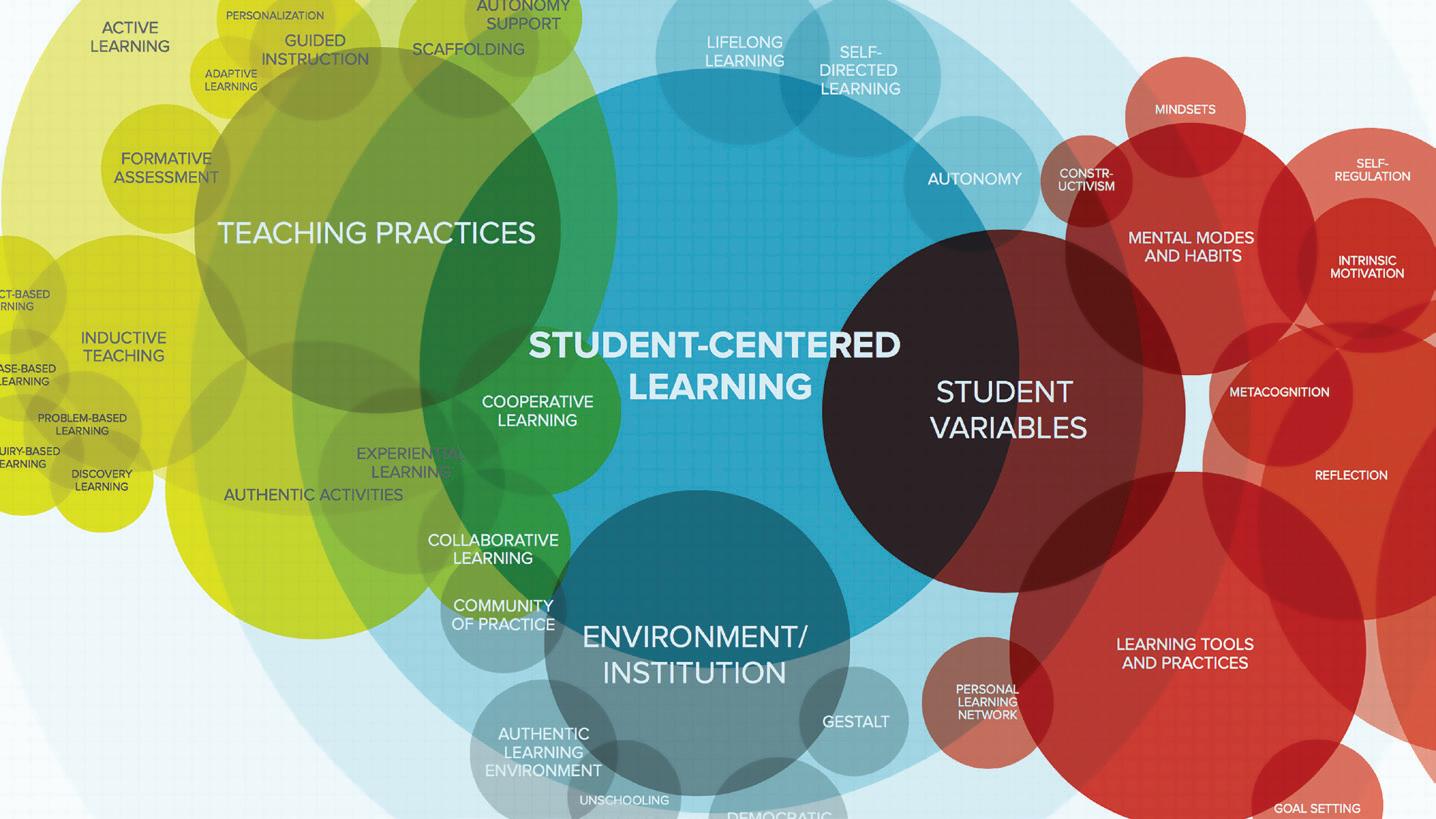
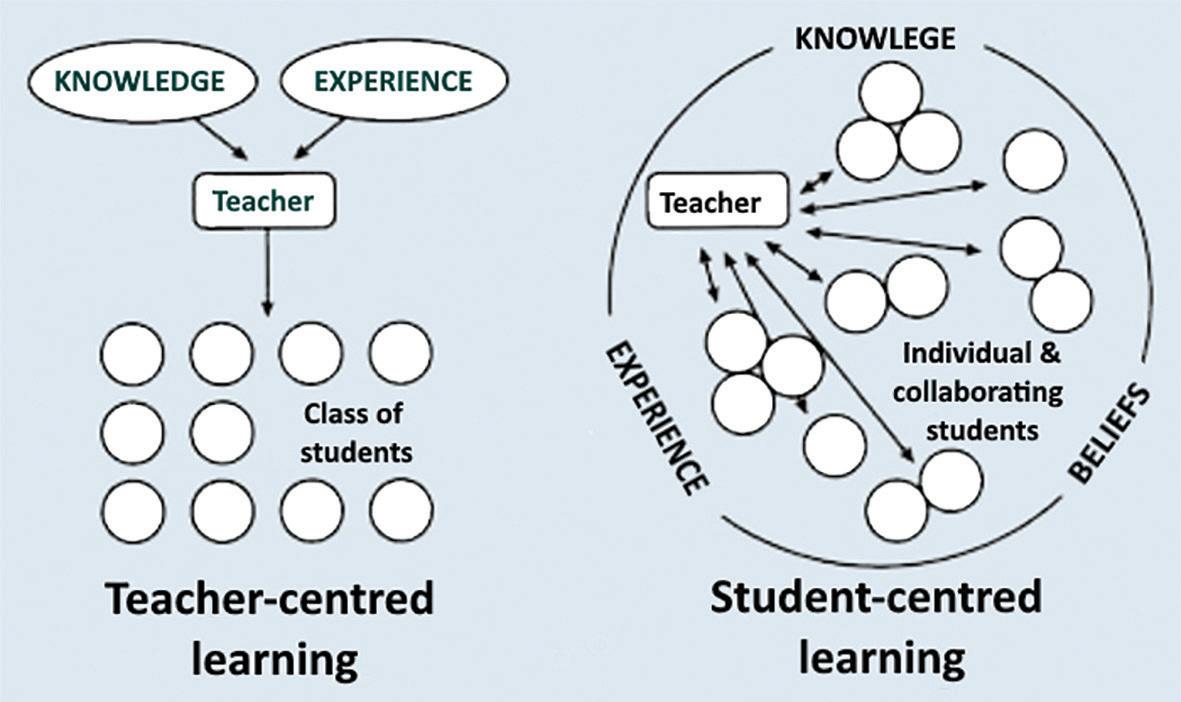
Complete the survey by circling the number that best corresponds to your own beliefs about how you like to learn. Key: 1 = Not like at all, 2 = Not like much, 3 = Just soso, 4 = Like, 5 = Like a lot
Topics In my English class, I would like to study topics . . . 1. about me: my feelings, attitudes, beliefs, etc. ( 1 2 3 4 5 ) 2. from my academic subjects: psychology, history, etc. 3. from popular culture: music, fi lms, etc. 4. about current aff airs and issues 5. that are controversial: underage drinking, etc.
Methods In my English class, I would like to learn by . . . 6. small group discussions and problem-solving 7. formal language study, e.g., studying from a textbook 8. listening to the teacher 9. watching videos 10. doing individual work
Language Areas Th is semester, I most want to improve my . . . 11. listening 12. speaking 13. reading 14. writing 15. grammar 16. pronunciation
Out of Class Out of class, I like to . . . 17. practice in the independent learning center 18. have conversations with native speakers of English 19. practice English online through social media 20. collect examples of interesting/puzzling English 21. watch TV / read newspapers in English
Assessment I like to fi nd out how my English is improving by . . . 22. having the teacher assess my written work 23. having the teacher correct my mistakes in class 24. checking my own progress / correcting my own mistakes 25. being corrected by my fellow students 26. seeing if I can use the language in real-life situations
(Adapted from Nunan, 2015, pp. 20–22.) Freire, Paulo. (1970). Pedagogy of the oppressed (M. B. Ramos, Trans.; 2nd. ed.). Continuum/Seabury Press. (Original work published 1968) Nunan, David. (2015). Teaching English to speakers of other languages: An introduction. Routledge
GWANGJU-JEONNAM KOTESOL UPCOMING EVENTS
Check the Chapter’s webpages and Facebook group periodically for updates on chapter events and online activities.
For full event details:
The Author
David Shaff er is an educator who has many years of experience in the fi eld of English education in Korea. Over the decades, his teaching approach has evolved from heavily teacher-centered to heavily student-centered, and he is most gratifi ed with the results. As vicepresident of the Gwangju-Jeonnam Chapter of KOTESOL, Dr. Shaff er invites you to participate in the teacher development workshops and their regular meetings. He is a past president of KOTESOL, and is currently the chairman of the board at the Gwangju International Center as well as editor-in-chief of the Gwangju News.
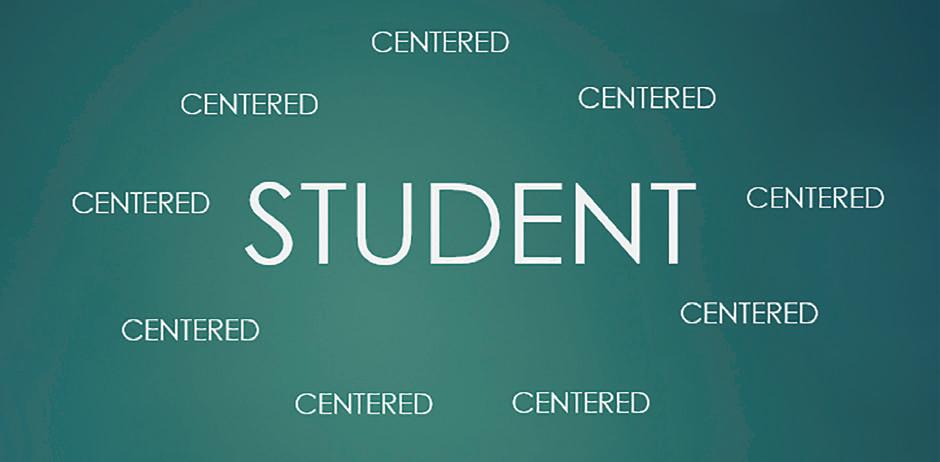
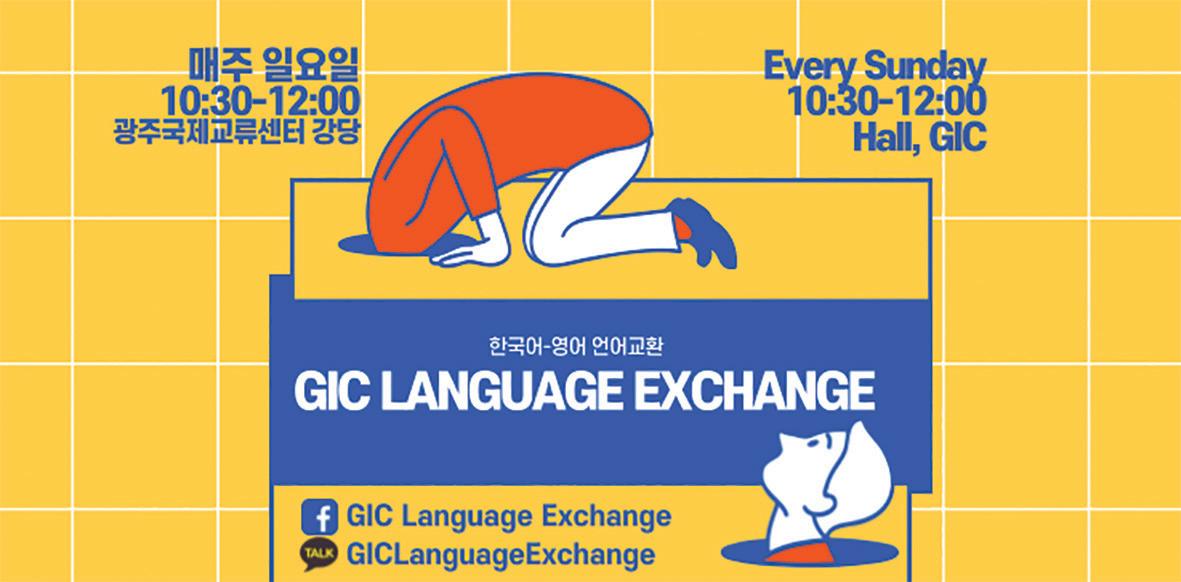

GIC Language Exchange Program
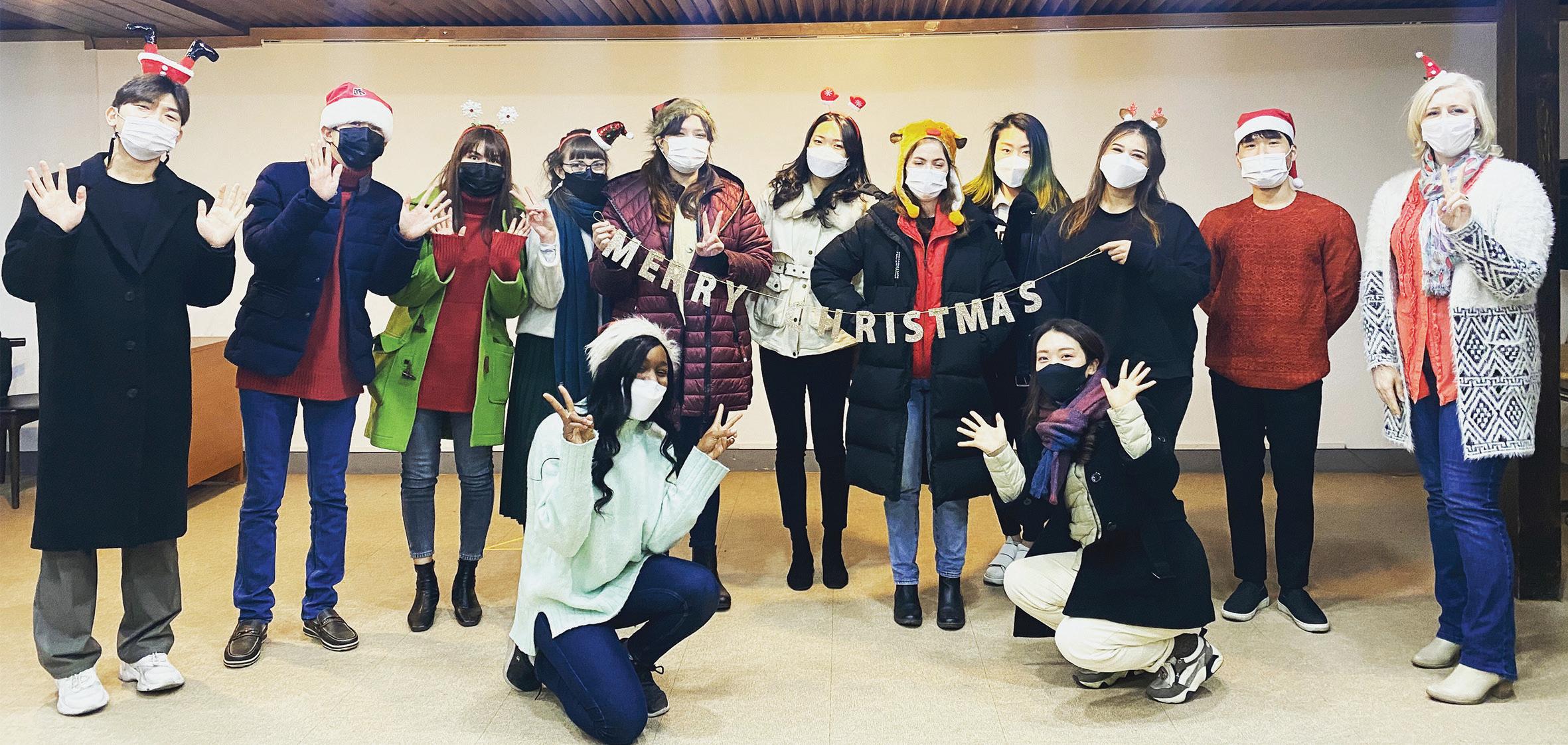
▲ GIC Language Exchange participants during a Christmas themed meeting, December 2020.
My Highlight of 2020
Compiled by Aline Verduyn
Saying 2020 was tough would be the understatement of the year. Our high hopes and aspirations were soon put to a halt. Despite it all, Gwangju pulled through and the community did its best to make it a memorable year. While social distancing, the Language Exchange Program (LEP), a program of the Gwangju International Center since 2017, did manage to have some interesting conversations on Sunday mornings. One of the topics discussed was the highlights of 2020, aside from the elephant in the room – COVID-19. Here are the participants’ responses to their highlights of the year.
Zahra from England
Moving to Korea in the middle of a pandemic was not easy, but I have made so many amazing memories that it is hard to choose just one highlight for last year. Spending a week exploring the palaces and markets in Seoul, enjoying the Chuseok sunshine on Jeju Island, and visiting Jeonju’s Hanok Village are just a few of my highlights from 2020. Mostly, the best part of 2020 has been meeting so many new people, friends, co-teachers,
Woochan from Korea
After graduating from high school, I entered Chosun University’s Medical School last year. It is exciting to be able to study what I dreamed of since I was young. Now I am preparing every day to become a medical worker. I want to make an effort to become a good doctor.
Jun from Korea
I lived in Australia for a couple of years since 2018 and made a bunch of memories that I can never forget. I went to Cairns, which is located in the north of Queensland, with my friends. It was literally full of nature, particularly the Great Barrier Reef. Now that I have gotten back from Australia and am currently staying in Gwangju, I will try not to forget the sights and feelings I experienced.
Emmanuela from Indonesia
2020 was a roller coaster year for me! I was struggling with my master’s thesis in the first half of the year, graduated, and then had a chance to be an intern in the Gwangju International Internship Program in the second half of the year. My journey in Gwangju has truly begun!
David from Korea
My highlight of 2020 was staying at home for the longest time in my life and thereby gaining a little understanding of myself.
Nikki from the Philippines
other. My highlight of 2020 was attending two academic conferences related to my field of study. It was particularly challenging because I was part of the committee staff at one and presented my research at the
Grace from Korea
My highlight of 2020 is love. Last year, all my plans got screwed up, and I needed to fix them. But whenever I tried to do something, things did not go as well as I thought they would. I was quite stressed and it made me depressed. But what I feel proud of is that I tried to meet with my family as soon as possible. With them, I could feel the love of family more than before through this situation. It was a really warm and happy experience. Even though I had a hard time, I was able to smile and keep aiming for what I wanted. I hope I can travel abroad with my family next year.
Le from Vietnam
My best highlight in 2020 was hiking up Mudeung Mountain, which I never before thought I could reach the top of alone. Thanks to Gwangju Hikers, I was able to be immersed in the beauty of nature and relax after a week of work. From then, I have been able to continue hiking with the group each month. If you are interested in hiking, please join us.
Inkyu from Korea
In January, when I was in New Zealand, I went skydiving. That was my first time to not feel any stress. Falling from the sky was awesome – you wouldn’t believe it! My friend told me before skydiving, “It will make you high.” After skydiving, I was indeed really high, so if I get the chance, I will do it again.
Jana from Serbia
My highlight of 2020 was finishing my master’s thesis and graduating from Konkuk University’s Graduate School of Culture Contents and Communication. Writing the whole thesis in Korean was one of the biggest challenges of my life, so I would like to remember this difficult, virus-stricken year with that accomplishment in mind. Cheer up, everyone who might be in a similar situation at this time – you can do it! Also, another highlight that wrapped up the year 2020 was the invaluable experience of being part of the Gwangju International Internship Program at the GIC. Thank you, GIC!
Eunsuk from Korea
My highlight of 2020 was a meeting with my friends. We had been busy working, raising our kids, and supporting our families. Finally, we got together in Seoul last summer. We shared lots of our stories and promised to be at the same place to take a photo every year. We still have dreams and want to cheer each other on. Jayoung, Samok, Sunok, and Huisu, keep reaching for your dreams!
As my fi rst year living away from home, living abroad, and working a full-time job, last year was understandably full of many ups and downs. But, if I had to choose one moment to be the highlight of my year, I couldn’t. 2020 brought me out of my comfort zone and allowed me to experience so many new things, like writing a newspaper article, participating in language exchanges, going on a temple stay, and meeting so many amazing people from all around the world. Th e whole year was a highlight and will always be special to me because not only did I learn more about a country, culture, and language that I love, I also learned about myself.
Usop from Korea
My highlight of 2020 is that I got the job that I had been dreaming of. I would like to share my good fortune with people who are seeking a job. 2021 will be fi lled with happiness for everyone. Happy New Year!
Julena from the USA
Th e highlight of my 2020 would have to be the amount of personal growth and aspirations I was able to accomplish. Due to the lack of numerous distractions, I was able to start some of the things I had so long made excuses not to do in previous years. Last year served as a year of refl ection and introspection for me, allowing me to scrutinize my life choices. I was able to see where I used to be, where I am now, and where I want to go later in life. 2020 was not a particularly eventful year, but it did allow me to take a chance on myself and my dreams, and I think for that I will always remember it as a special year for years to come.
Yongmin from Korea
Some bad things happened to me last year. My company is going to divide into two – a parent company and a subsidiary company in 2021 – and I will go to the subsidiary, which is worse than staying with the parent company. What is worse is that the subsidiary will not guarantee our employment. Th at is the biggest concern for all the subsidiary employees. We need to think about something to support our lives economically without help from our company – things such as investments in stock or real estate.
Hyunsoo from Korea
a year feeling excited and worried. I hope 2021 will be a year full of new and exciting things. Happy New Year, and I wish you all the best in everything you do!
Aline from Belgium
I thought I had reached my highlight in February when I got to see a temple in the snow, but the best was yet to come. I discovered a passion for photography and got recognized for it (thank you, Gwangju News!). I also started working for GFN Radio. Never had I dreamed of visiting a radio station, let alone walking into a recording studio! It was the start of a new adventure, and now it is a weekly event.
Jurang from Korea
A lot of things happened to me last year. I came back to Korea from lots of traveling, met nice people, and started to work as an English teacher. To be honest, however, it was the worst year in my life so far. But I strongly believe God has a reason for giving me a hard time, and I’m sure He has wonderful plans for me in the future.
LANGUAGE EXCHANGE
Every year diff erent hosts bring new fl avor to the Language Exchange’s weekly meetings. Th is year, Lee Woo Chan and Aline Verduyn are running the program on Sunday mornings from 10:30 a.m. to 12 noon at the GIC Hall. With a hot cup of coff ee, students from all over Gwangju and the world have group conversations in English and Korean. Th e topics of discussion are diverse, give insight to our respective cultures, and are announced ahead of time. Th e morning ends with a fun yet informative quiz and a group photo. Th e group is always wellbalanced between Korean and international students, ranging from all levels of English and Korean profi ciency. Th ere is no obligation to come every week, people join as they can. Th e group is also very active on social media and keep in touch throughout the week as well. It is a welcoming group that is eager to answer any questions on English, Korean, or navigating through Gwangju. Newcomers are encouraged to join the group. Face-to-face meetings are expected to resume soon – COVID conditions permitting. Updates are announced on all the group’s social platforms. Facebook: GIC Language Exchange; Instagram: @giclanguagexchange2021
